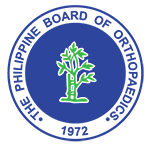The National Orthopaedic Residency Assistance Program is a program established by The Philippine Board of Orthopaedics, Inc. through a board resolution passed in its board meeting last December 11, 2020, to help the orthopaedic training departments in getting the best applicants to undergo their training programs by providing a pool of resident applicants best suited to the strengths and capabilities of the department to undergo the training program and also help the resident applicant find the institution that he believes will provide him/her the best training in orthopaedics for himself/herself.
Before its implementation, it was presented as a proposal in the business meeting of the Philippine Board of Orthopaedics during the annual convention of the Philippine Orthopaedic Association last November 2020. The merits of the program including its timetable of implementation were presented during this meeting. A Committee on NORAP made up of at least four (4) members of the Board of Trustees with one that is a technology “guru” and members preferably having finished courses in pedagogy in residency training whether here (POA/PBO COrE) or abroad was created by the Board to oversee the activities of the program.
A website of the PBO was created to contain all information pertinent to orthopaedic training in the Philippines that includes NORAP. To facilitate the proper matching of residents, regionalization of residency programs in the country was done where all training programs in the Philippines were distributed into seven (7) groups. This regionalization is to help the resident applicant decide where to apply depending on his/her area of residence and giving him/her a bird’s eye view of the available training programs with no prejudice to applying to a training program outside of the region of his/her residence.
A newly licensed physician who wishes to undergo training in orthopaedic surgery will have to apply to NORAP. Applicants will choose at least 2 training programs ranking them as a first or second choice. All applications will be submitted through the website and the completeness of requirements for residency training will be checked by the Committee. No walk-in application will be entertained by the training department upon the implementation of this program. Instead, all queries about orthopaedic residency training should be directed to the PBO website or through an e-mail addressed to the Committee.
A National Orthopaedic Aptitude Examination (NOAE) made up of 200 questions will be conducted by the committee on NORAP for all applicants. The examination will only rank the applicants from highest to lowest giving a percentile rank and the results of the examination will only be provided to the training program of choice of a particular resident applicant within a week after the examination. Applications together with all of the documentary requirements and the result of ranking from NOAE will then be forwarded by the Committee to the training programs chosen by the resident applicants.
Through this program, the selection process of the department will be enhanced and made easier since an objective basis for their decision will be provided, with the resident applicant having his performance during medical school, medical internship, and aptitude in orthopaedics already assessed and evaluated before application.
The training departments may schedule additional requirements like personal or online interviews of the resident applicants or a pre-residency period to be spent in the department as deemed needed for the final decision on the acceptance of the resident applicant to their training program. The CORAP will not be responsible for the decision on who to accept but will just have a central repository of the requirements, documentary, and otherwise and forward these to the department to facilitate their selection process. The criteria and decision for acceptance will still rest on the department.
Once a decision is reached on who to accept in the residency program of the institution, the Training Officer of the department will forward the list of selected applicants to the Committee who will then inform the successful applicants of their acceptance and then record it in the National Orthopaedic Residency Assistance Program. The applicant will then communicate directly with the residency programs where they were matched for specific requirements to start the residency training.

